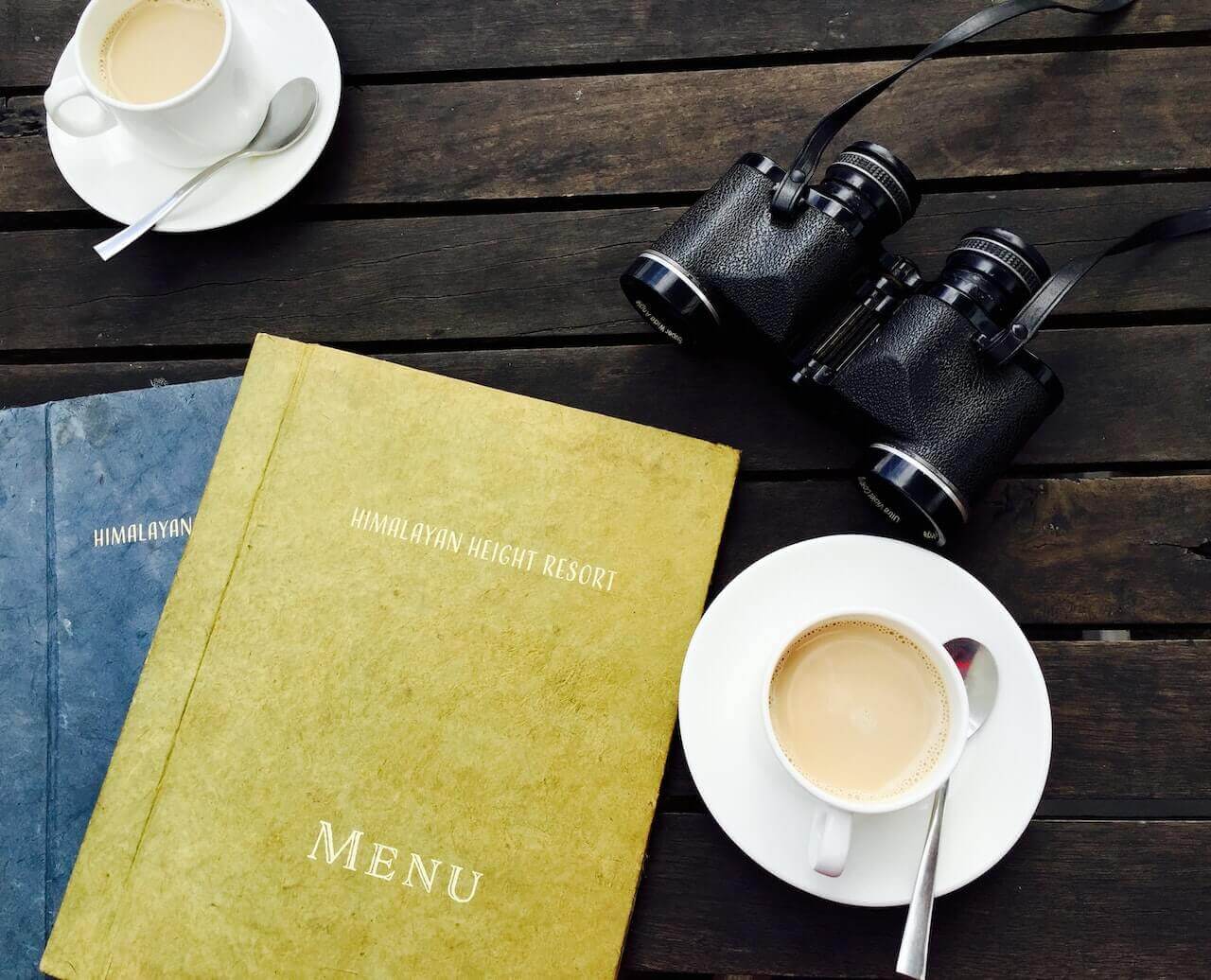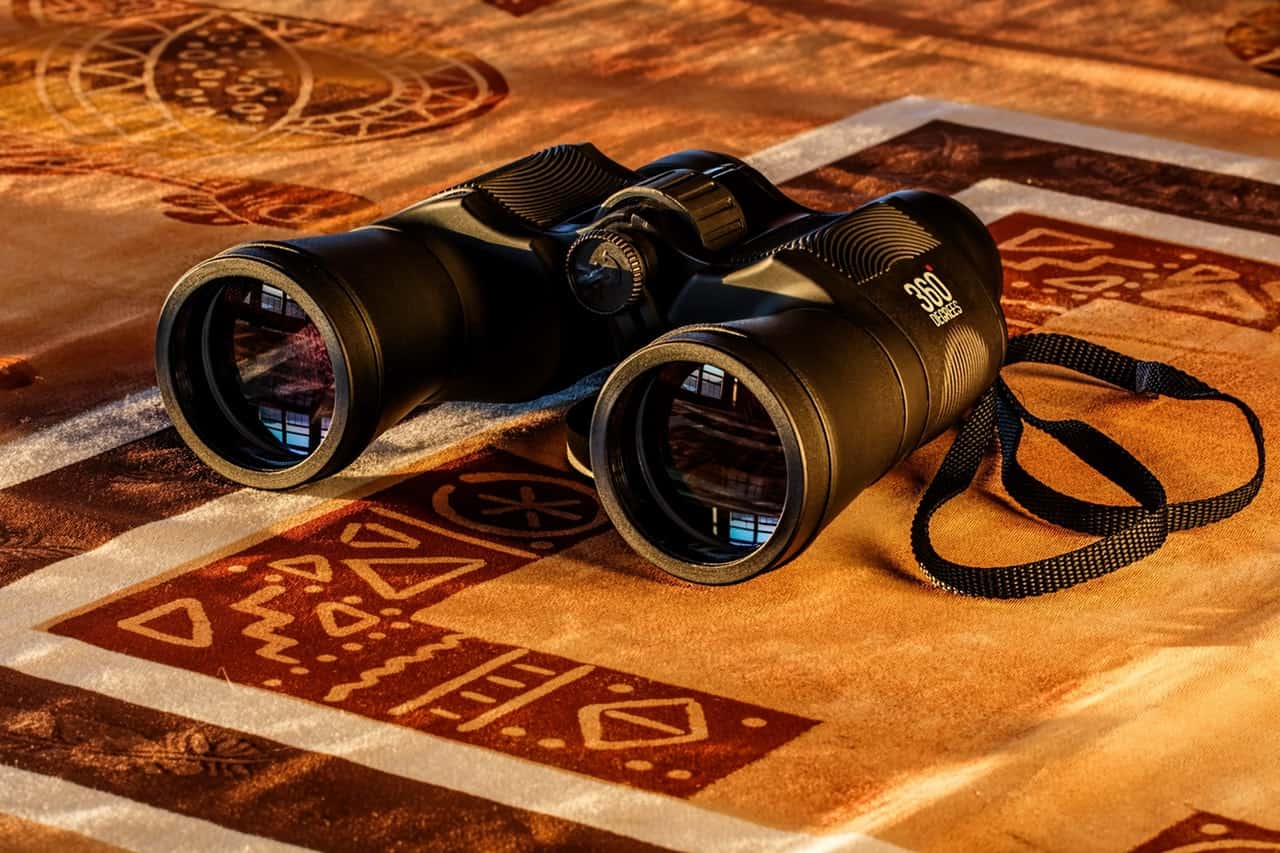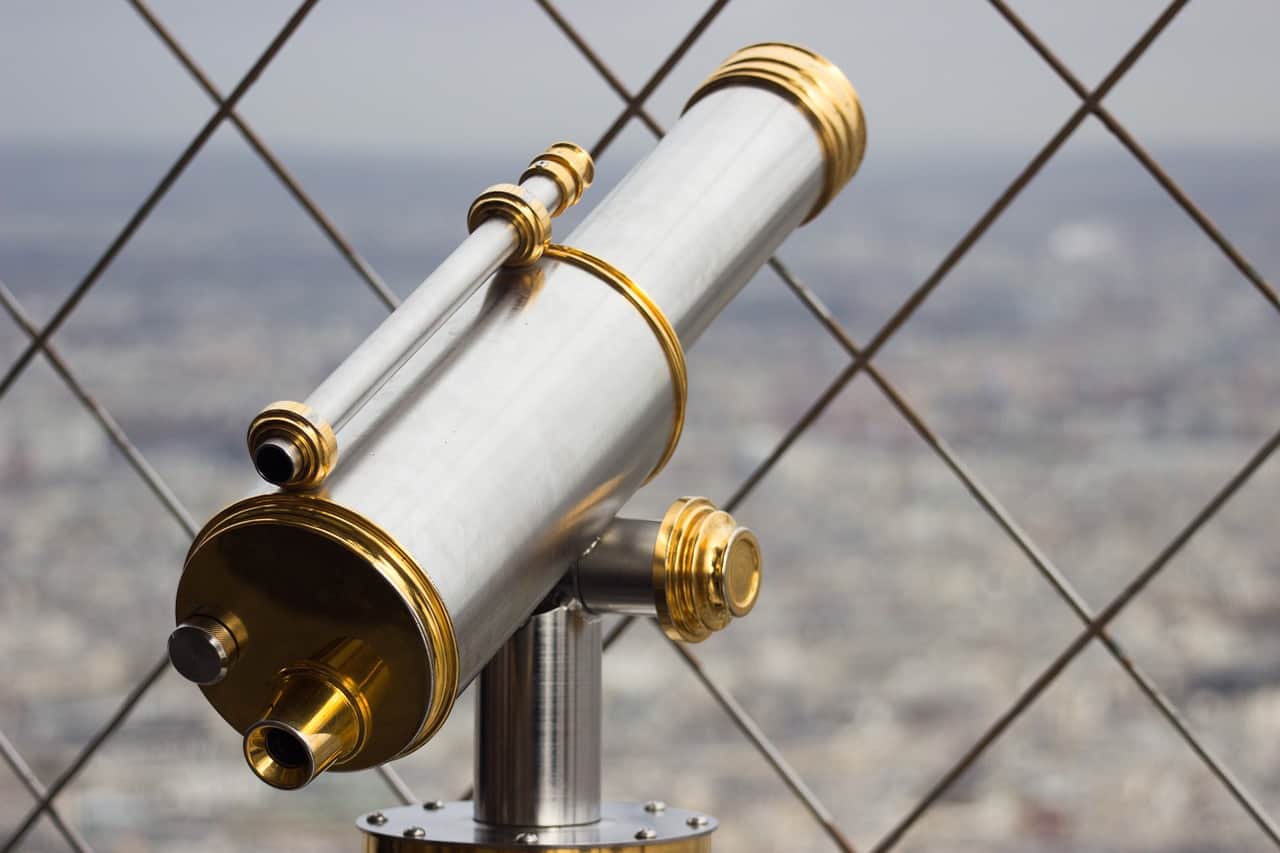Have you ever wondered why binoculars are called bins? It’s not because they’re used to store objects but rather because of their twin lenses. Let’s take a closer look at the history and meaning of this term:
The word “bins” is short for the word “binoculars.” The word “binocular” comes from the Latin word “bino + oculus,” meaning “two by two.” This refers to the two lenses in a pair of binoculars, which work together to magnify objects. The word “bins” likely came about as a shortened version of “binoculars.
But the interesting thing is, there’s more to the word “bins” than it being short for binoculars. There’s some origin-related and slang lingo behind this word most don’t know about. If you’re a passionate glasser with an interest in languages and slang, stick around to know how binoculars became bins!
Origin of the Word “Bins”
Binoculars get their name from bino + oculus, which is Latin for “two eyes or two by two.” And most people use binoculars’ short form “bins” while talking about them. The word “bins” is most likely derived from Cockney English, hinting at wearing glasses or receptacles.
This makes sense, as binoculars are essentially two telescopes joined together. The first recorded use of the word “bins” in this context dates back to 1808. Interestingly, the word “bins” also refers to a type of Scots dialect in which some words are pronounced with a sort of nasalized sound. However, this usage is considered unrelated to the word’s use for spectacles or binoculars.
Also Read: Why Are Binoculars So Expensive
How and Where the Term “Bins” Came to Mean Binoculars?
The term “bins” started being used for binoculars in the early 1800s, and its exact origin is unknown. However, there are several theories about how this term may have come about.
One theory is that the term may have been derived from the word “binocle”, a type of opera glass popular in the early 1800s. Another theory is that it may have been derived from the French word “binochles”, which means “two glasses.” Yet another theory is that it may have been derived from the Latin word “bino + oculus,” which means “to see with two eyes.” No one knows for sure how this term came about, but it definitely stayed.
Fun Fact:
Believe it or not, the term “binoculars” is actually derived from a mistake made by an early inventor. In the early 1800s, an English scientist named Sir David Brewster came up with the idea for a new type of telescope that could be used by both eyes. He named his invention the “binocular microscope,” meaning “two-eyed.”
However, the public misunderstood his meaning, and started calling the devices “binoculars.” and shortly after, “bins”. The name stuck, and to this day, people refer to binoculars as “bins.” Although the common notion is that binoculars are called bins or binos because they’re short forms, language and dialect experts say that these words date way back.
Also Read: Are Nitrogen-Filled Binoculars Any Good?
What is the Meaning of Bins in Cockney Rhyming?
Bins is a Cockney rhyming slang term for glasses. Besides glasses, binoculars, spectacles, and receptacles are all called bins in Cockney rhyming.
The full phrase in the Cockney language is ‘bins and out,’ which means ‘glasses and out’. This is because ‘bins’ rhymes with ‘glasses,’ so it’s used as a replacement word. This phrase is typically used to tell someone to leave, as in “time to go – I’ve got my bins on.” This type of slang was popularised by the East End of Londoners in the late 1800s as a way to encode their language and make it difficult for outsiders to understand them.
Bins in Cockney rhyming slang for binoculars is derived from the fact that “bins” rhymes with “eyes” and thus provides a way to refer to binoculars without actually saying the word. While the origins of Cockney rhyming slang are unclear, it is thought to have originated in the early 18th century. Today, the use of Cockney rhyming slang is considered to be a defining feature of London’s East End dialect. While its use has declined recently, it is still heard occasionally among older generations.
Also Read: Can You Use Binoculars For Astronomy?
Are Binoculars Still Called Bins?
Not really; the most common word you’ll hear for binoculars is binos or binocs these days. Although the term “bins” has a long-standing history, glassers don’t really know about it and use a short form of binoculars in their regular conversations.
Most people have probably heard of binoculars, but maybe not everyone knows that they have another name. Binoculars are also commonly referred to as field glasses. This name is more accurate in terms of their function, as binoculars are usually used for activities such as bird watching and observing nature. However, the name binoculars is more commonly used in everyday conversation. So whether you call them bins, binoculars, or field glasses, they serve the same purpose – to help you see things that are far away.
Also Read: Why Are Zeiss Binoculars So Expensive?
What are Some Other Terms/Names for Binoculars?
Some other names for binoculars that optic enthusiasts often use include “field glasses” and “double opera glasses.”
Sure, binoculars are sometimes called field glasses, opera glasses, or simply optic lenses. However, the term binoculars is most often used to describe two-lens instruments that produce three-dimensional images. Binoculars are used in various settings, from indoor sporting events to outdoor nature viewing.
Binoculars are the modern versions of portable telescopes used for magnifying distant objects. They consist of two small telescopes that are mounted side-by-side and can be adjusted to fit the user’s eyes. Binoculars are also sometimes referred to as field glasses, opera glasses, or simply glasses – but the usual terms you’ll hear are bins, binos, and binocs.
Also Read: Why Do Binoculars Have Red Lenses?
Summing Up
Binoculars are usually called “bins” because they have two objective lenses. The term “binocular” comes from the Latin words for “two” and “eye.” While the word “binoculars” is the more common term today, the word “bins” is still used occasionally. In addition to their dual lenses, binoculars also have a system of prisms that helps to reflect and refract light in order to provide a clearer image.
Binoculars are a valuable tool for birders, hunters, and other outdoor enthusiasts who need to see distant objects clearly. Thanks to their dual lenses and prisms, binoculars allow users to get a closer look at the world around them. And lastly, we hope this interesting breakdown of binoculars’ etymology taught you something new!
Also Read: Why Do Binoculars Fog Up?

Binos enthusiast since I was 12 – A real expert in all things optics including rifle scopes and red dots. Live in Dubai & love writing, beaches and eating!






